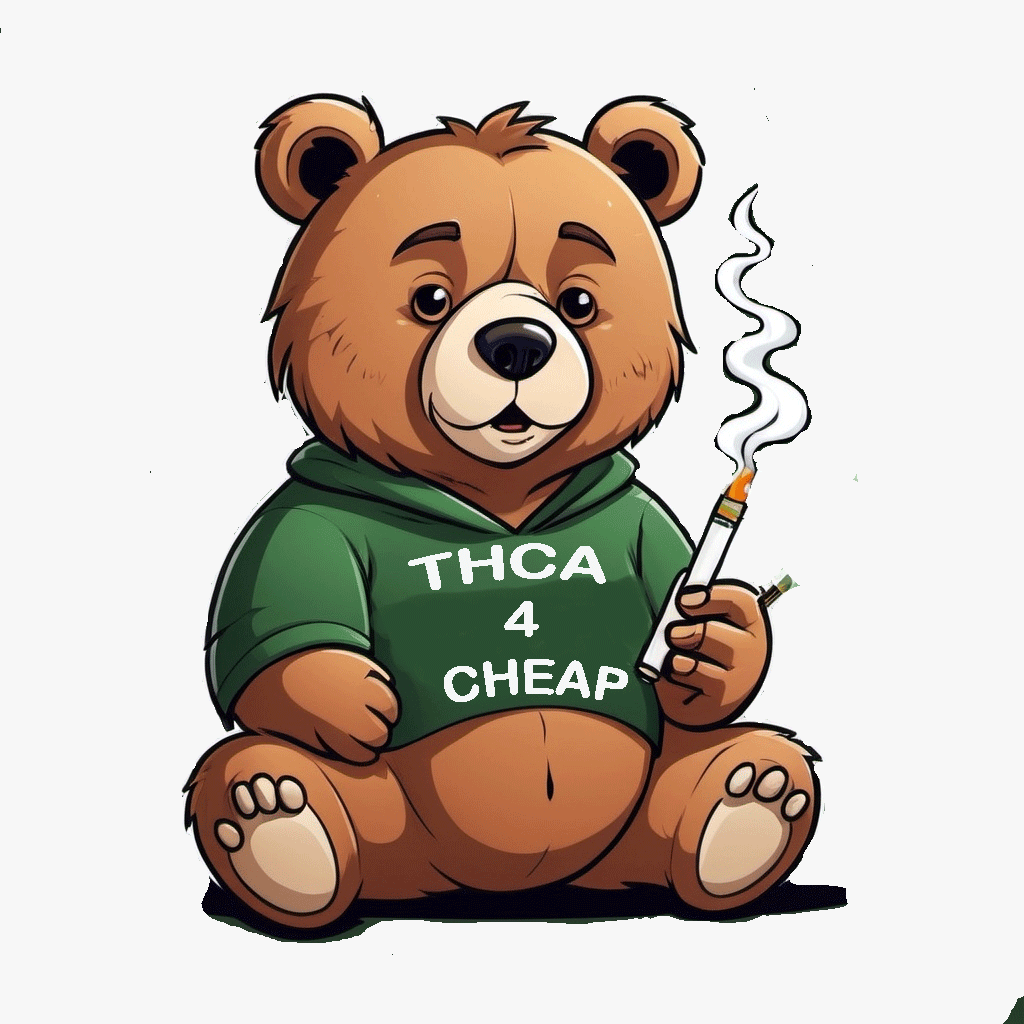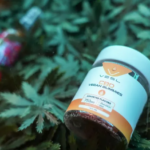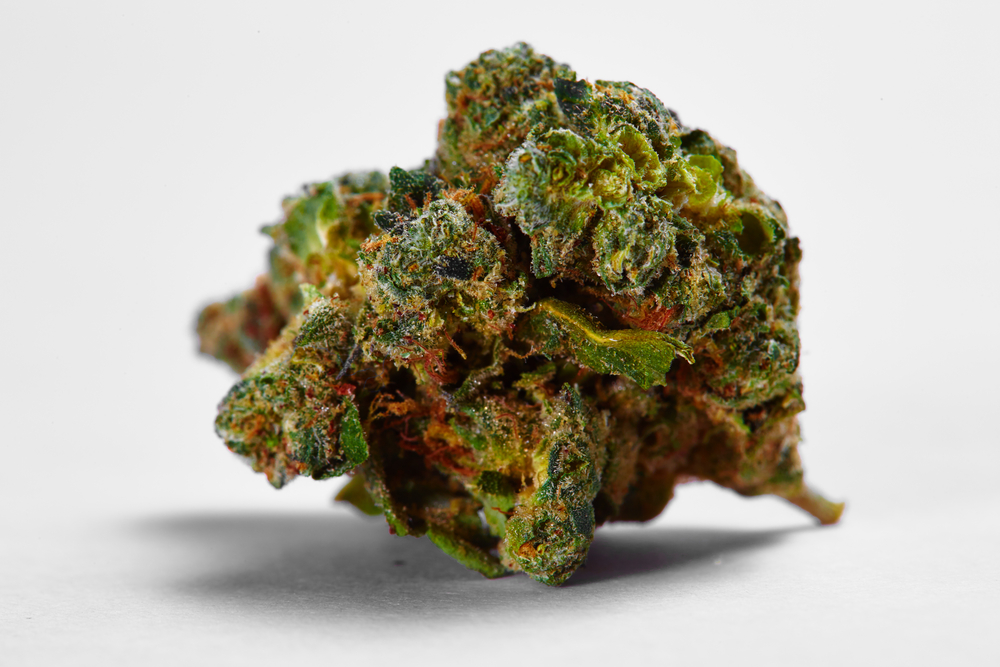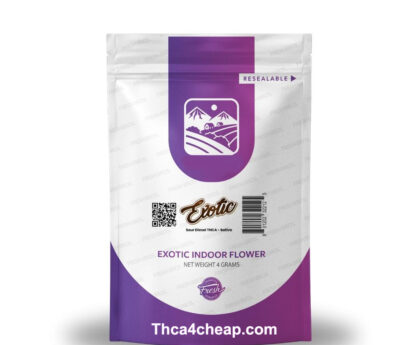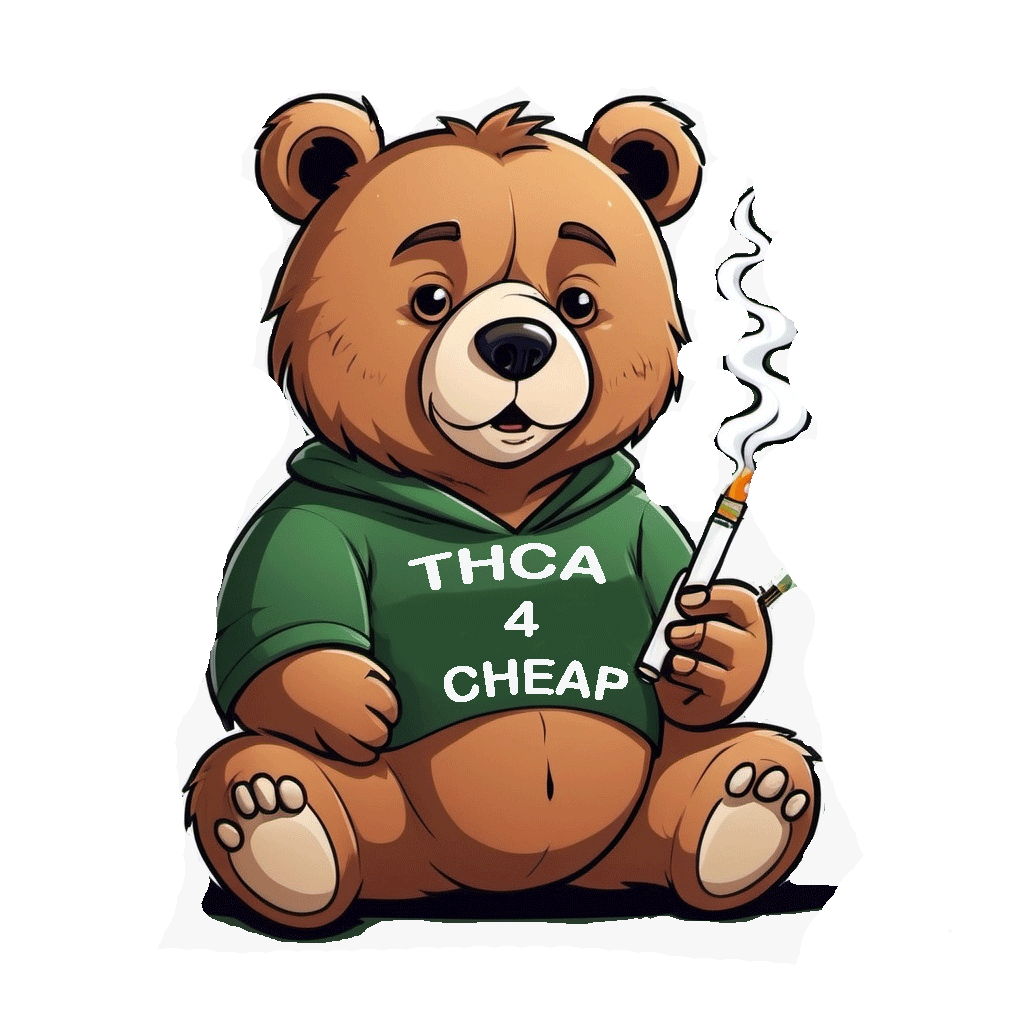Does THCA Get You High?
Does THCA Get You High?
Introduction
Tetrahydrocannabinolic acid (THCA) is a non-psychoactive cannabinoid found in raw and live cannabis. It is the precursor to tetrahydrocannabinol (THC), the well-known psychoactive compound responsible for the “high” associated with cannabis use. This leads to an important question: does THCA itself get you high? The Short answer Is no, that is until you light it on fire! That is where the loop hole comes in from the 2018 farm bill. THCA4CHEAP.COM will walk you through the technical aspects of THCA flower and how it is the exact same cannabis that you buy from your local dispensary. The ONLY difference is that THCA is FEDERALLY LEGAL while your local dispensary weed in not. Understanding the chemical nature of THCA, how it converts to THC, and the methods of consumption are crucial to answering this question comprehensively.
The Chemical Nature of THCA
THCA is the acidic form of THC and is found in the trichomes of live cannabis plants. Chemically, THCA has an extra carboxyl group compared to THC. This additional molecular component prevents THCA from binding effectively to the cannabinoid receptors (CB1 and CB2) in the brain and central nervous system. These receptors are responsible for the psychoactive effects experienced with THC consumption. Therefore, in its raw form, THCA does not induce the euphoric sensations associated with THC.
Decarboxylation: The Conversion Process
For THCA to convert into THC, it must undergo a process called decarboxylation. This chemical reaction involves the loss of a carboxyl group in the form of carbon dioxide, transforming THCA into THC. Decarboxylation typically occurs when cannabis is exposed to heat or light. Common methods of decarboxylation include smoking, vaping, or cooking cannabis at specific temperatures. This conversion is essential for the activation of the psychoactive properties of THC. Without this process, consuming raw cannabis rich in THCA will not produce a high.
Methods of Consumption
The way cannabis is consumed significantly affects whether or not the THCA is converted to THC, and thus whether a psychoactive effect is experienced.
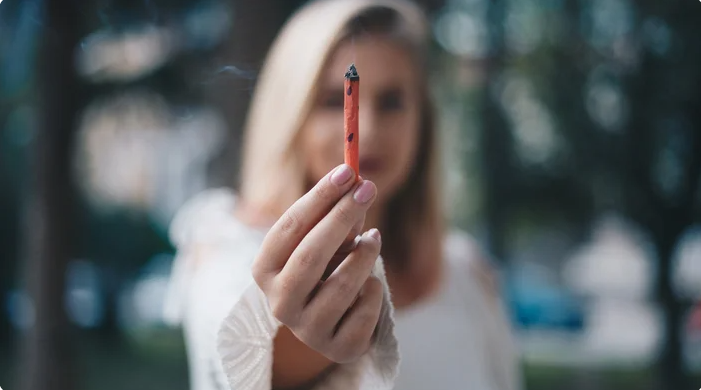
Raw Consumption
Consuming raw cannabis, such as in smoothies, salads, or juices, will not induce a high. This is because THCA remains in its non-psychoactive form without the application of heat. Many health enthusiasts consume raw cannabis to take advantage of the potential health benefits of THCA without experiencing the psychoactive effects of THC.
Smoking and Vaping
Smoking or vaping cannabis subjects it to high temperatures, causing rapid decarboxylation of THCA into THC. This process activates the psychoactive properties, resulting in the well-known cannabis high. The efficiency of decarboxylation through smoking or vaping ensures that a significant portion of THCA is converted to THC, leading to potent psychoactive effects.
Does THCA Get You High With Edibles and Cooking
When preparing cannabis-infused edibles, decarboxylation is a critical step. Cannabis is often baked or heated at controlled temperatures to convert THCA into THC before incorporating it into foods. Properly decarboxylated cannabis in edibles will produce a high when consumed, whereas edibles made with raw cannabis containing THCA will not.
Potential Benefits of THCA
While THCA itself does not get you high, it has garnered interest for its potential therapeutic benefits. Research suggests that THCA may have anti-inflammatory, neuroprotective, and antiemetic properties. Some studies indicate that THCA might be beneficial in treating conditions like arthritis, neurodegenerative diseases, and nausea. However, more research is needed to fully understand the extent of THCA’s medicinal properties and its efficacy in treating various ailments.
Legality and Market Availability
The legal status of THCA and THC varies widely across regions. In many areas where cannabis is legalized for medical or recreational use, products containing THCA are available. These products are often marketed for their potential health benefits and as a way to consume cannabis without experiencing a high. It’s essential for consumers to be aware of local laws and regulations regarding THCA and THC to ensure legal compliance.
Conclusion
In summary, THCA does not get you high in its raw, unheated form due to its inability to effectively bind to cannabinoid receptors in the brain. The psychoactive effects associated with cannabis are primarily the result of THC, which is produced from THCA through the decarboxylation process. Understanding this distinction is crucial for consumers looking to utilize cannabis for either its psychoactive effects or potential health benefits.
For those seeking the therapeutic potential of cannabis without the high, THCA-rich products might be a suitable option. Conversely, individuals looking for the psychoactive experience of cannabis must ensure that the THCA is properly decarboxylated to THC. As research continues to explore the benefits and applications of cannabinoids, both THCA and THC remain important compounds with unique properties and uses.
THCA is federally legal while your local state cannabis is not. Every time you purchase cannabis from your local dispensary you are committing a federal crime whereas with THCA you are not. Whether for medical, recreational, or nutritional purposes, knowledge about THCA and its effects empowers consumers to make informed decisions about their cannabis use.

